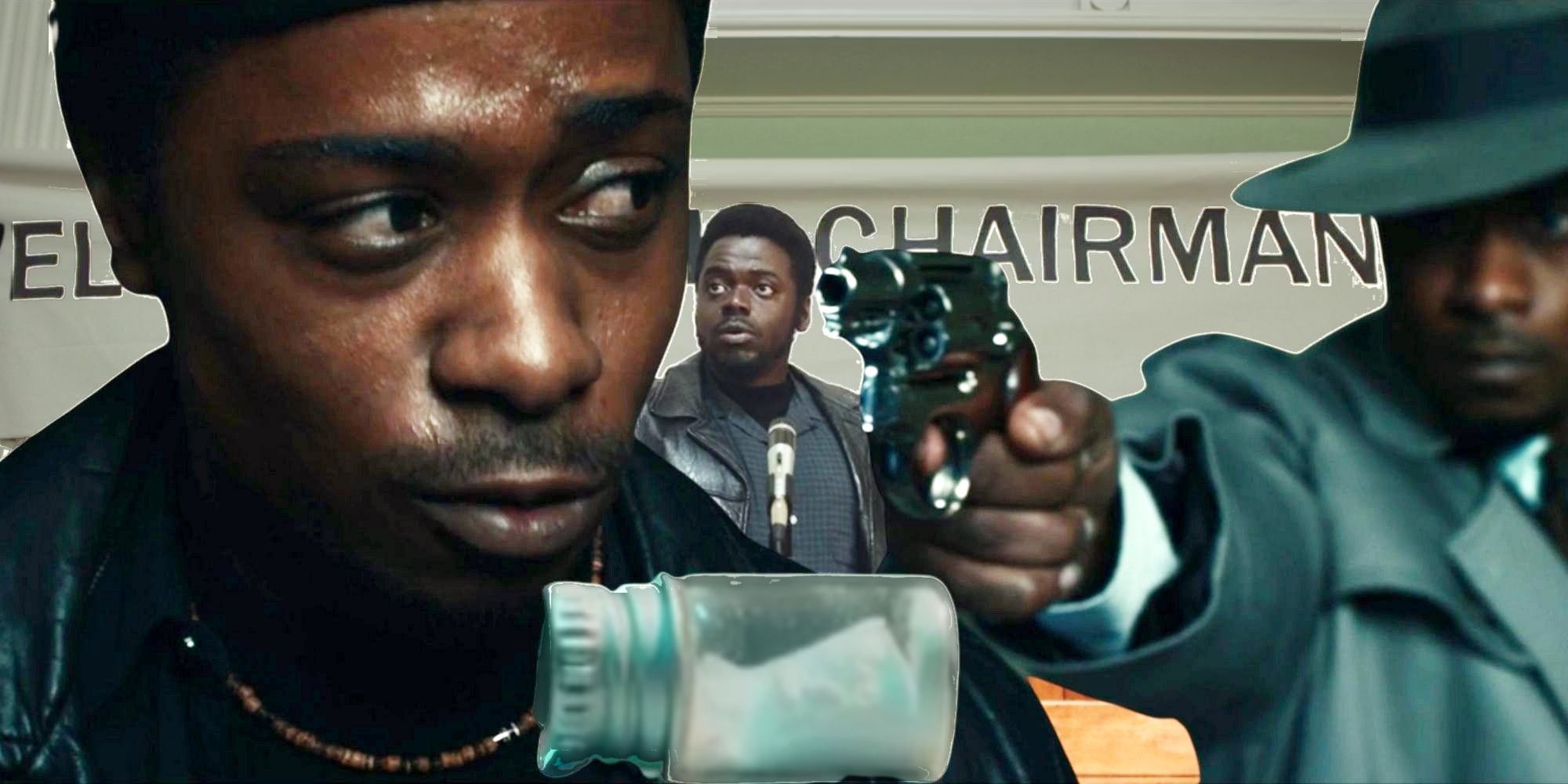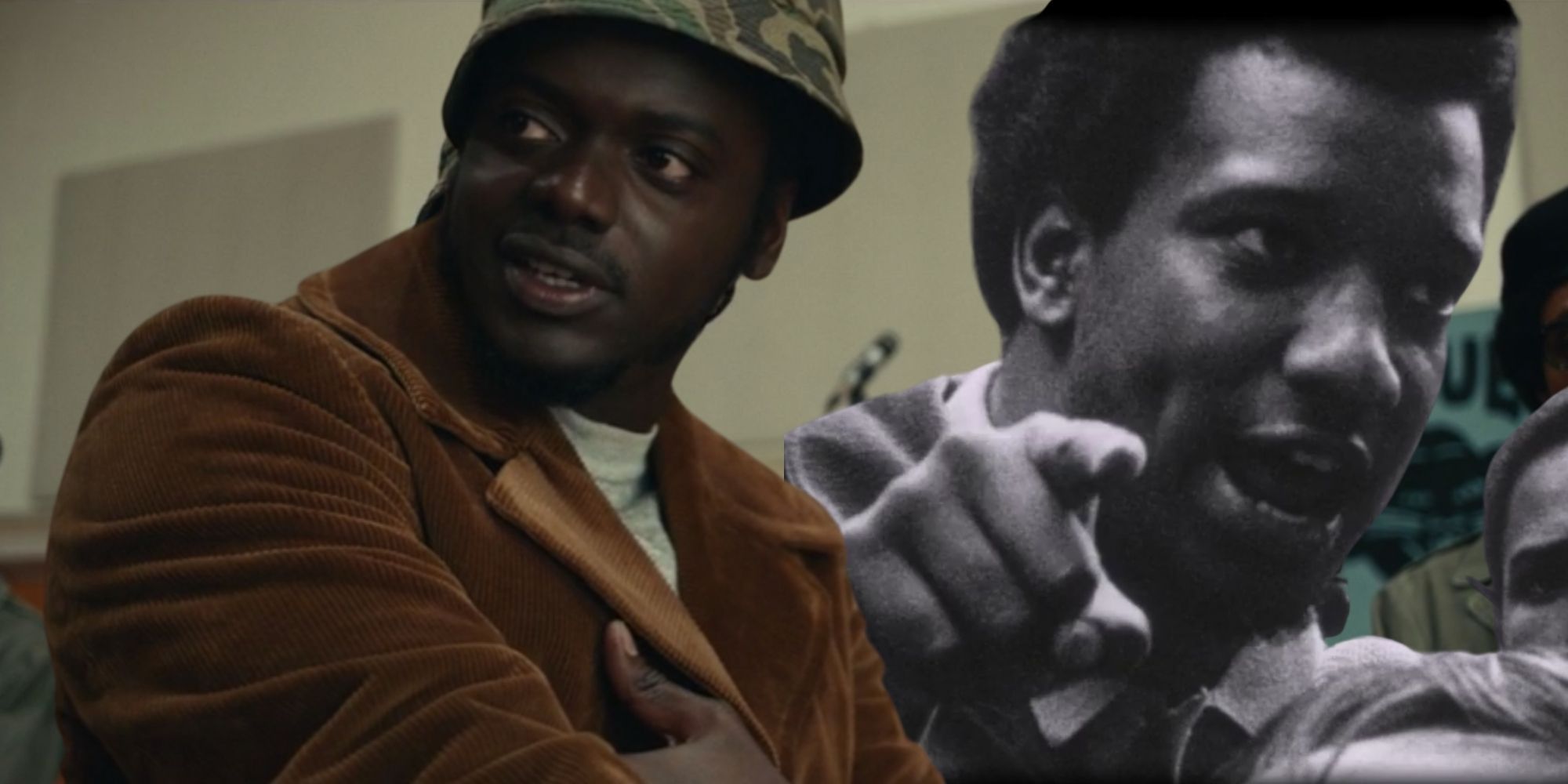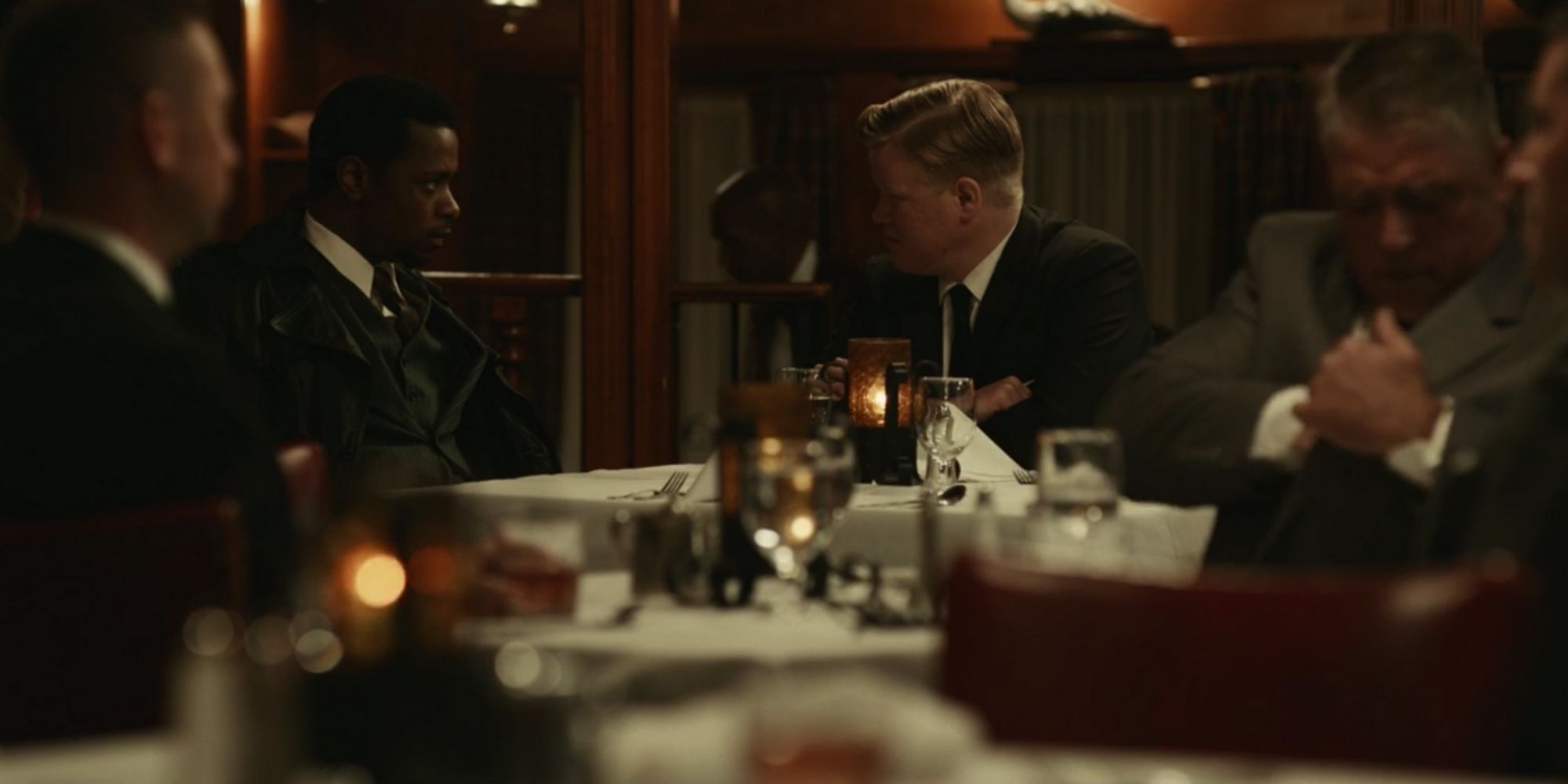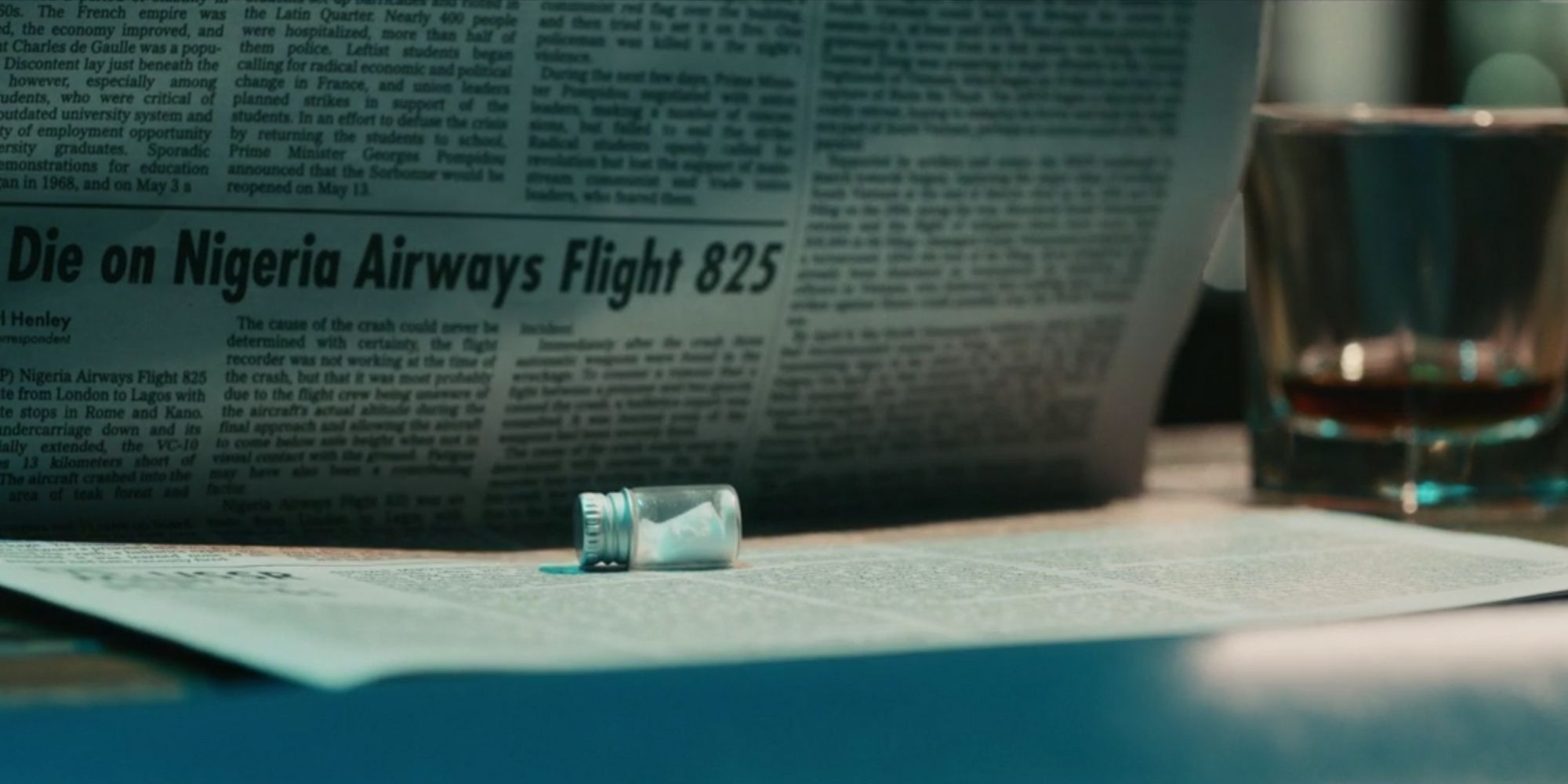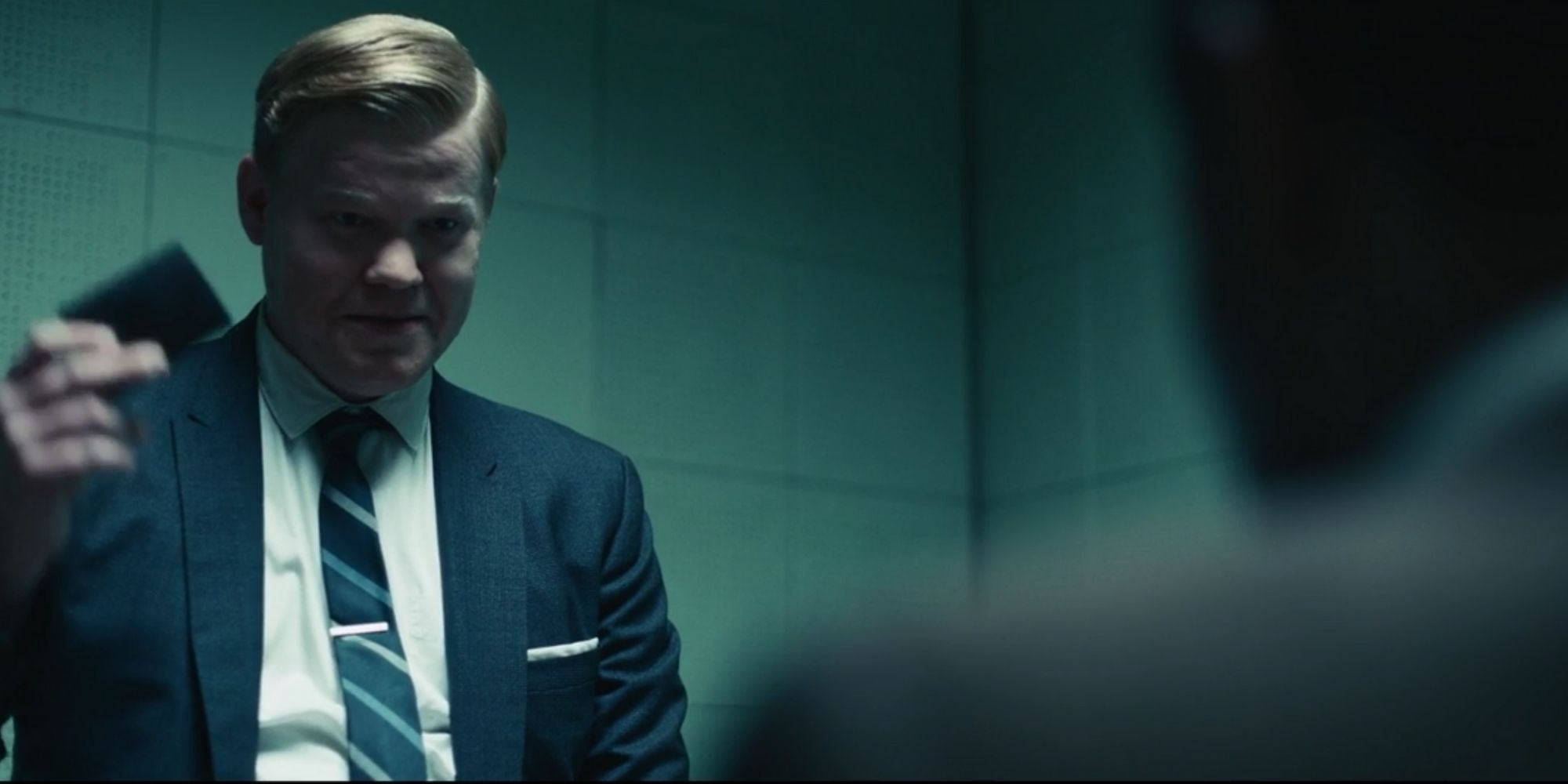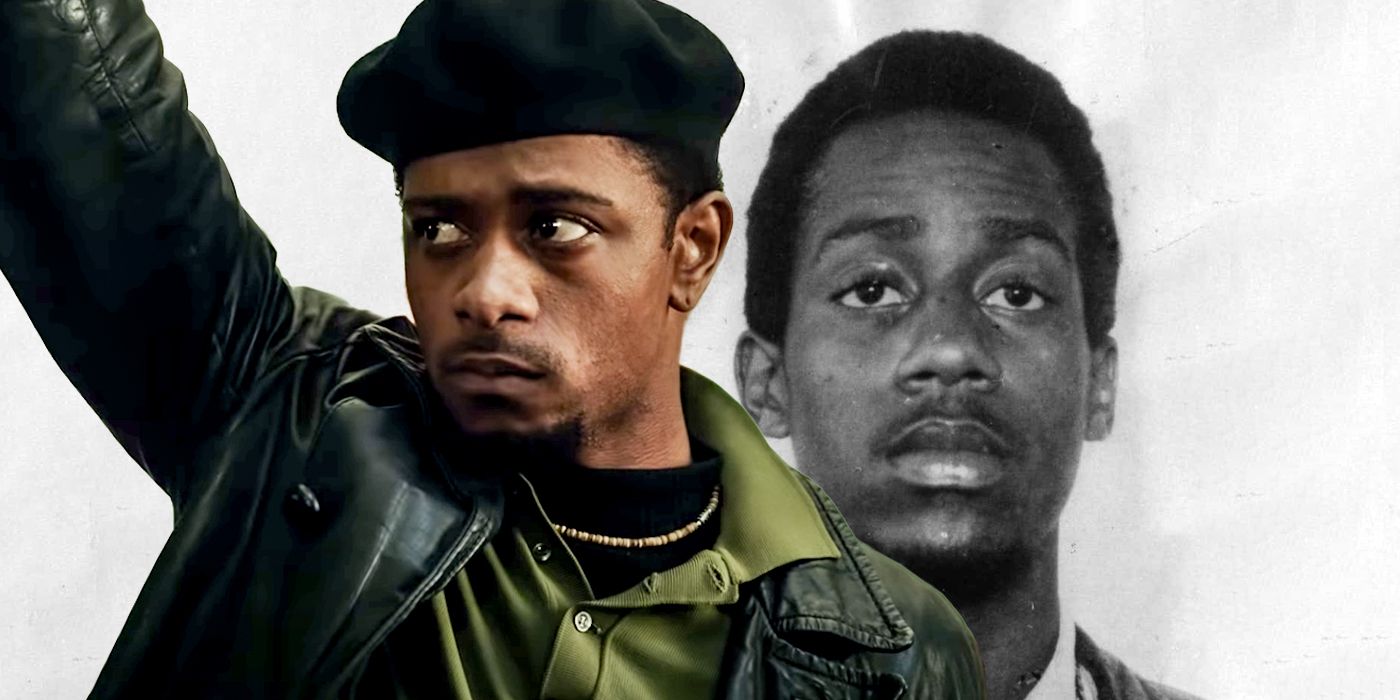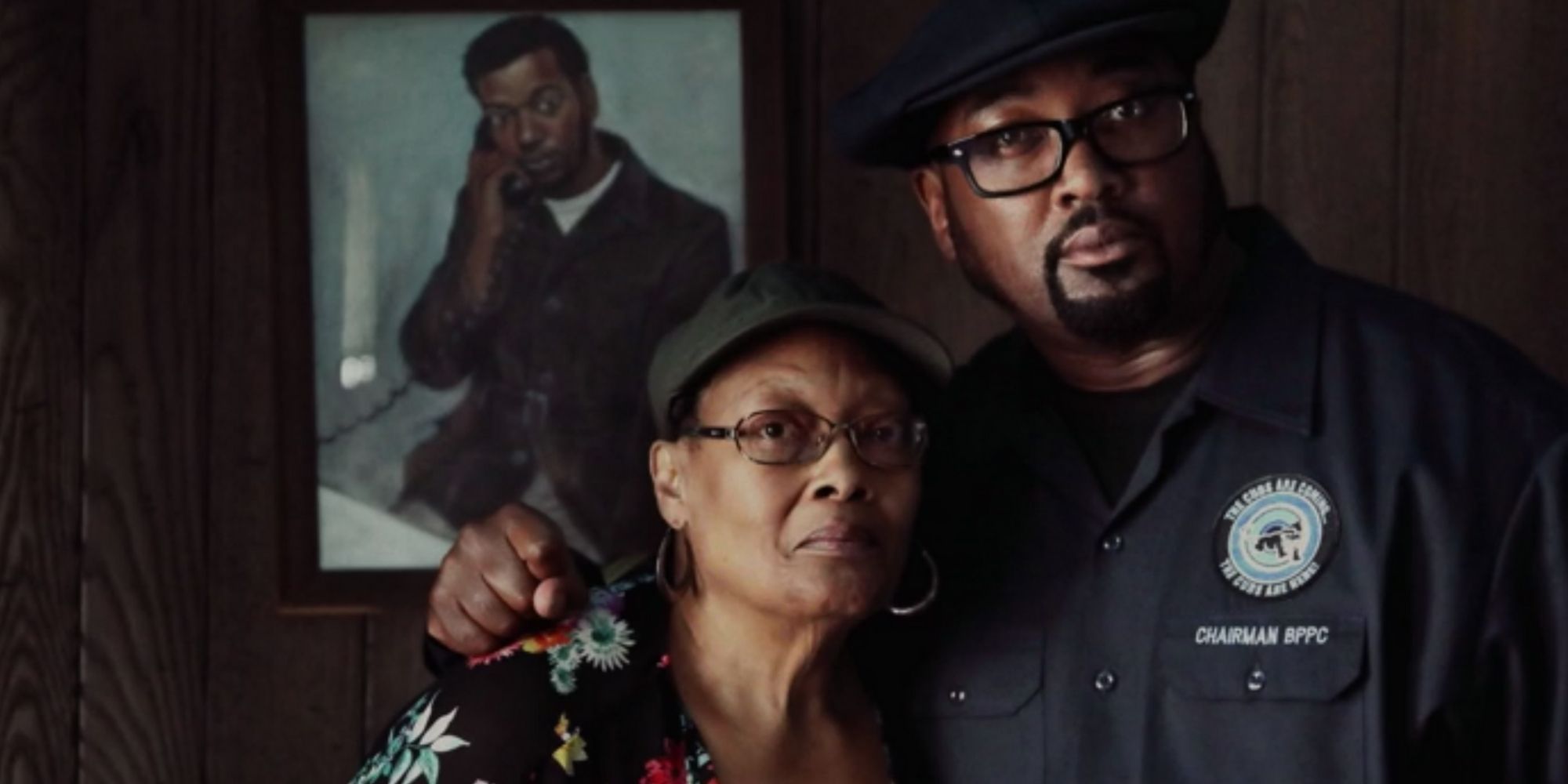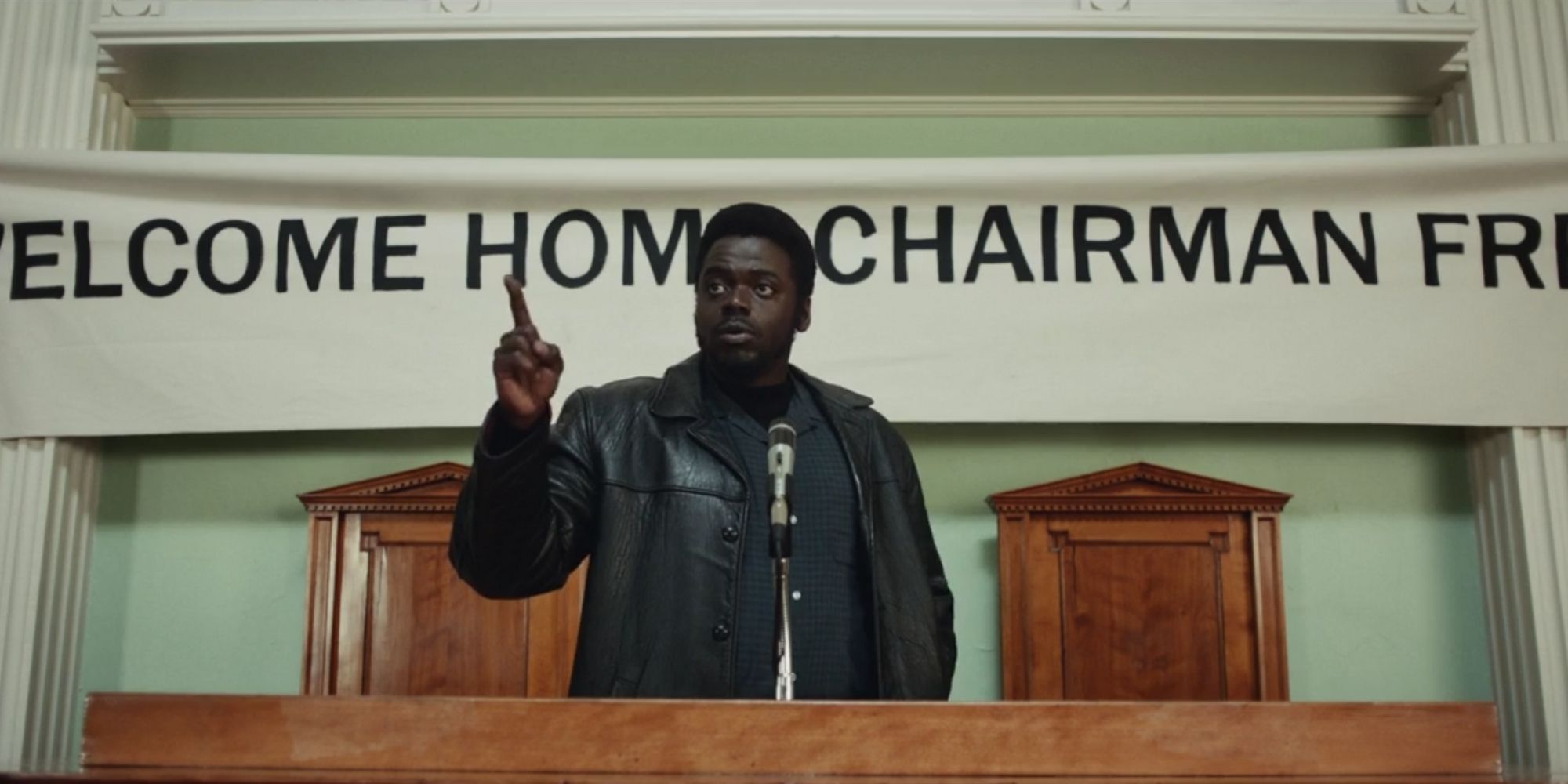The thrilling true story Judas & The Black Messiah recounts the activism and violent suppression of the Black Panther Party's Illinois chapter in the late 1960s. Shaka King, in his big-screen directorial debut, teams up with stars Daniel Kaluuya (Get Out, Black Panther), Lakeith Stanfield (Atlanta, Sorry to Bother You), and Jesse Plemons (Breaking Bad, Vice) to bring this revolutionary biopic to audiences who are still engaged in the fight for racial justice. Available on HBO Max, the film will undoubtedly resonate with a nation reeling in the wake of the high-profile killings of George Floyd and others by police.
Judas & The Black Messiah tells the real-life story of Fred Hampton (Kaluuya), chairman of the Illinois chapter of the Black Panther Party, and William O'Neal (Stanfield), an FBI informant working for the Bureau to avoid jail time for his own criminal activity. As Hampton builds his "Rainbow Coalition" of activist groups, the notorious J.Edgar Hoover (Martin Sheen) instructs O'Neal's boss, Roy Mitchell (Plemons), to use his informant to eliminate the threat posed by the Party's charismatic leader. As the film enters its third act, O'Neal must decide what side of history he wants to be on: contribute to the revolution and risk his own safety, or aide in the government's illegal assassination of a promising young activist.
Judas & The Black Messiah brings into focus a chapter of civil rights history that was recently touched upon in Aaron Sorkin's The Trial of the Chicago 7, but this time puts the Black Panthers, Fred Hampton and Bill O'Neal at the center of the story. Here's a breakdown of how much of Judas and the Black Messiah's ending is truth, what is fiction, and what happened next.
How Accurate Judas & the Black Messiah Is
Although Fred Hampton's name doesn't come up as often as MLK or Malcolm X in history curriculums, his story is vital to understanding the civil rights movement as it emerged from the tumultuous 1960s. King and fellow writers Kenny and Keith Lucas understood this, and sought to keep as faithful as possible to the true events, reaching out to the family of Fred Hampton among others for information. In an interview, the writers told Decider that the biggest assumptions they made involved Hoover's knowledge of the raid that took Hampton's life (which was recently confirmed) and O'Neal's relationship with Mitchell. For the latter, they had to fill in some gaps, as O'Neal's information - available via the docu-series Eyes On The Prize featured at the end of Black Messiah - is understandably unreliable.
What Happened After Judas & The Black Messiah's Ending
After raiding the apartment of Fred Hampton, police immediately reported that their arrest team had been attacked by the "violent" and "extremely vicious" Panthers, even commending officers on their restraint for not killing all the Panthers present. Though shots fired by the police outnumbered those fired by Panthers 99 to one, it was the surviving Panthers who faced criminal charges instead of the police. Fred Hampton's death during the police raid of his residence factored into The Trial of the Chicago 7 by way of Hampton's involvement with Black Panther co-founder Bobby Seale. That trial continued in the wake of Hampton's murder. Ramsey Clark, also featured in Chicago 7, alleged with fellow activist Roy Wilkins that the Chicago Police unlawfully killed Hampton and company during what constituted an illegal search and seizure, and that the Department imposed summary punishments on the remaining Panthers.
As for O'Neal, the film states in its epilogue that he continued to serve within the Panthers through the early '70s. He later admitted to his involvement with the FBI in their plans to dismantle the Panthers shortly before committing suicide on January 25, 1990. Members of the Weather Underground launched a retaliatory bombing spree against police days after the raid. Hampton's widow Deborah gave birth to their son, Fred Hampton, Jr., 25 days after the assassination. He would go on to become Chairman of the Prisoners of Conscience Committee and the Black Panther Party Cubs, titles he still holds today.
Did O'Neal Really Drug Fred Hampton (& What With?)
Reports indicate that this part of the film's conclusion is true. In Outlaws of America: The Weather Underground and the Politics of Solidarity, it is alleged that O'Neal slipped "a substantial dose of secobarbital in a glass of kool-aid" the night of the planned raid, rendering Hampton comatose at the time of his murder. He had fallen asleep mid-sentence speaking with his mother on the phone, further corroborating the presence of a sleeping agent. Deborah Johnson had to be forcibly removed from Hampton's side, as he was unresponsive to the commotion. In The Assassination of Fred Hampton: How the FBI and the Chicago Police Murdered a Black Panther, it was reported that Cook County chemist Eleanor Berman ran two separate tests that presented evidence of barbiturates in Hampton's blood, though he was not known to take drugs. The FBI failed to find such evidence in their own tests, but then, their involvement presents a conflict of interest.
Why Hampton's Death Doesn't Free O'Neal From The FBI
Throughout the film, O'Neal makes several attempts to declare himself "out" of this scheme. At every turn, Roy Mitchell reminds him that the sentence for his felony crime, which he's avoided by agreeing to work with the Bureau, isn't over simply because of Hampton's death. This is indicated by his final line of the film, in regards to O'Neal's statement that he isn't a Panther anymore: "You sure about that?" O'Neal continued to work for the Bureau within the Panthers until 1973, when he was relocated to California with a changed name under the Witness Protection Program.
How Did O'Neal Really Feel About Betraying Hampton?
This is tricky to determine given the unreliability of O'Neal's direct quotes. Because he was caught in a threatening position between the intimidating Panthers and even more intimidating Bureau, his personal testimony may be affected by fear of retribution from either of these two organizations. In an article from the Chicago Reader titled "The Last Hours of William O'Neal," O'Neal's uncle Ben Heard details his nephew's fear, saying, "He said they had someone tied up and they were pouring hot water over his head. They were trying to get him to do something." perhaps referencing informant George Sams. Heard went on to suggest O'Neal was plagued by guilt for the rest of his life after Hampton's murder: "I think he was sorry he did what he did. He thought the FBI was only going to raid the house." O'Neal's suicide attempts would back this up - and in the end, one of those attempts succeeded.
Fred Hampton's Black Panther Legacy (& How It Continues)
Jeffrey Haas, who wrote the aforementioned book The Assassination of Fred Hampton, remarked that Chicago was worse off without the young Panther's strong leadership, with many young people in its West Side falling victim to drugs and gang violence. In its epilogue, the film describes the lawsuit from the families of the slain Hampton and Mark Clark, which was the longest of its kind and eventually settled for $1.85 million. Hampton's widow, Akua Njeri (formerly Deborah Johnson), and son, who took his father's name at age 10, survive him and continue the fight for racial justice.
Judas & Black Messiah's Modern Parallels & Real Meaning Explained
Director Shaka King said of his film during a virtual press event, "Our goal was to really make a movie that captured 1968. But so little has changed between 1968 and 2021, that we don't really have to draw parallels to the present." In an interview with The Daily Californian, the cast of Judas & The Black Messiah discussed the relevance of their film in today's sociopolitical climate. Darrell Britt-Gibson, who played Black Panther Party Illinois Chapter founder Bobby Rush, touched directly on how the story relates to the present: “Fifty years ago, Chairman Fred Hampton was assassinated in his sleep, in his apartment, minding his own business. And just last year, Breonna Taylor was assassinated in her sleep, in her apartment, minding her own business. And in both cases there was no justice served, so the parallels are right there.”

